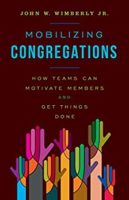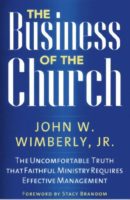The positions that dominated church staffs in the 20th century don’t necessarily work in the 21st century. Instead of reflexively hiring an associate pastor to replace an associate who has departed, many congregations now hire people with specific skills—in communication, marketing, fundraising, and other needed specialties. Congregations and judicatories also are evaluating whether ministry work can sometimes be done better by part-time than full-time people.
As a result, an increasing part of my consulting work is to help congregations and judicatories rethink their staff designs. The ministry needs of congregations today are, in many instances, significantly different from the past. What are some of the issues congregations and judicatories consider regarding how best to use their personnel budgets?
- Communications: The church secretary was once responsible for collecting articles for a monthly newsletter, assembling them into an attractive form, printing and stuffing the newsletter into envelopes, and then mailing them. Today, fewer and fewer congregations rely on hard copy dissemination of information as a primary communication tool. As a result, they need a staff person skilled at the ways people communicate today: eblasts, websites, text messages, Facebook, Twitter, and WhatsApp. Finding a traditional secretary who has the communication skills needed today can be a challenge. Increasingly, congregations hire a person whose full- or part-time job is to handle electronic communications.
- Religious Education: Many congregations no longer have large, traditional religious education programs. Sunday morning soccer, among many other things, has sabotaged Sunday school attendance across the country. Consequently, congregations question the need for a full-time religious education person (ordained or not). Increasingly, they opt for part-time religious educators who can work at times other than Sunday mornings when programs are more likely to attract critical mass.
- Stewardship: Younger generations make contributions to congregations in ways that are very different from those who sat in the pews ten years ago. They are inclined to text a contribution, scan a QR symbol in the bulletin, or respond to an eblast with a solicitation for a particular church need. Congregations are hiring people to help them manage the transition from a pledge-based revenue stream to whatever is coming next.
- Finances: The use of financial management programs such as QuickBooks has changed the amount of time needed for handling the money as well as the skill set required to do the job. What are the roles of the Treasurer and bookkeeper in a system where the bulk of the work is done with software?
- Secretarial/Administrative Work: There is still a need for administrative work in a church, but the nature of that work has changed dramatically. Several decades ago, the church secretary put together the worship bulletin. Today it can be done by pastor(s) using templates created with word processing software. Secretaries used to type letters and other documents. Now pastors do that work themselves. Secretaries sometimes managed the pastor’s calendar. Today it can be done by the pastor using web-based software accessible on a mobile phone.
- Building Maintenance: Many congregations are using or considering cleaning services instead of having a staff member do the work. Some congregations find it is a cheaper option. Other congregations find the lack of personal relationships between a janitor/sexton and the congregation too important to lose.
Cost is always a consideration when creating staffing plans. Many congregations are re-examining the desirability of full-time staff because of the rising cost of pension and health benefits. In some denominations, mandatory pension and health insurance costs can add 33% or more to the salary and housing package of a full-time ordained clergyperson. Even with non-ordained positions, the moral imperative to provide solid benefits to full-time staff adds significantly to costs, leading congregations to consider the cheaper option of part-time employees without benefits.
Think Different
While there may be some financial advantages to hiring part-time staff, managing them can be challenging. Part-time staff typically have another major time commitment in their life (another job, parenting, education, etc.). As a result, they may not be available when congregations need them.
My advice to congregations is simple: Don’t automatically replace departing staff with another person doing exactly the same work. Use staff turnover as an opportunity to examine how those dollars might be better used in a different staff configuration. After a thorough evaluation of the options, a congregation may decide to keep the same job description. But it may find that a different staff alignment optimizes their personnel dollars. Spending time thinking strategically about staff design makes hiring easier and results in a more effective staff team.
John Wimberly is an experienced pastor and consultant. As a consultant, he has worked with congregations and judicatories on strategic planning, staff designs for the 21st century, and congregational growth as well as financial and administrative management. He has MBA, MDiv, and PhD (theology) degrees. His books focus on effective management and leadership. John believes congregations can have a bright future!




